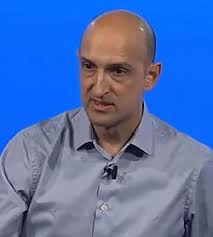The Impact of Matthew Syed on Performance and Success

Introduction
Matthew Syed is a British author, journalist, and former table tennis champion. Recognised for his profound insights into performance, learning, and success, he has made significant contributions in various sectors, including education and sports. His work resonates not only with those seeking improvement in athletic performance but also with individuals and organisations aiming to foster growth and resilience. The relevance of Syed’s ideas has only heightened in today’s fast-paced and competitive environment.
Background and Achievements
Born on November 2, 1970, in Reading, England, Matthew Syed gained prominence as a table tennis player, representing Great Britain at the Olympics and Commonwealth Games. Following his sporting career, Syed transitioned into journalism and authorship, becoming a columnist for The Times, where he discusses a wide range of topics from sport to psychology.
Matthew’s first book, Bounce: The Myth of Talent and the Power of Practice, published in 2010, challenges the traditional beliefs surrounding talent and its role in success. Instead, he highlights the necessity of practice, perseverance, and the belief that anyone can improve their abilities through dedication and hard work. This revolutionary perspective has influenced educators, athletes, and professionals alike.
Current Events and Continuing Influence
In recent months, Matthew Syed has been vocal about topics such as the importance of a growth mindset and the role of failure in learning. His influence extends to various platforms, including podcasting, where he shares interviews and conversations with diverse individuals ranging from athletes to scientists. His podcast, Mathew Syed Podcast, delves into themes of performance, resilience, and innovation, drawing an audience that seeks to understand what drives success.
Furthermore, Syed has been actively involved in discussing the impact of education systems on individuals’ potential. He argues for a shift in educational approaches to nurture creativity and critical thinking rather than rote learning. His advocacy remains pertinent as educators worldwide navigate the challenges presented by technological advancements and shifting societal needs.
Conclusion
The insights provided by Matthew Syed continue to resonate with many, encouraging readers to emphasise resilience and the potential for improvement. As organisations and individuals strive for excellence, Syed’s work remains a foundation for discussions on performance and development. His voice serves as a reminder that success is often a product of determination and a willingness to embrace challenges, and his contributions are expected to shape conversations around these themes for years to come.
